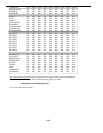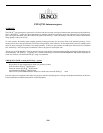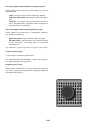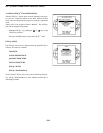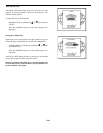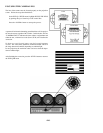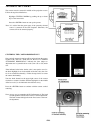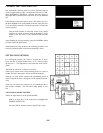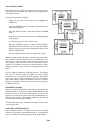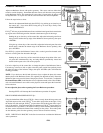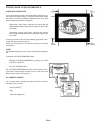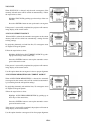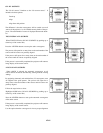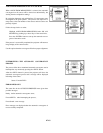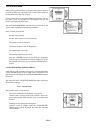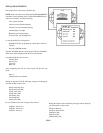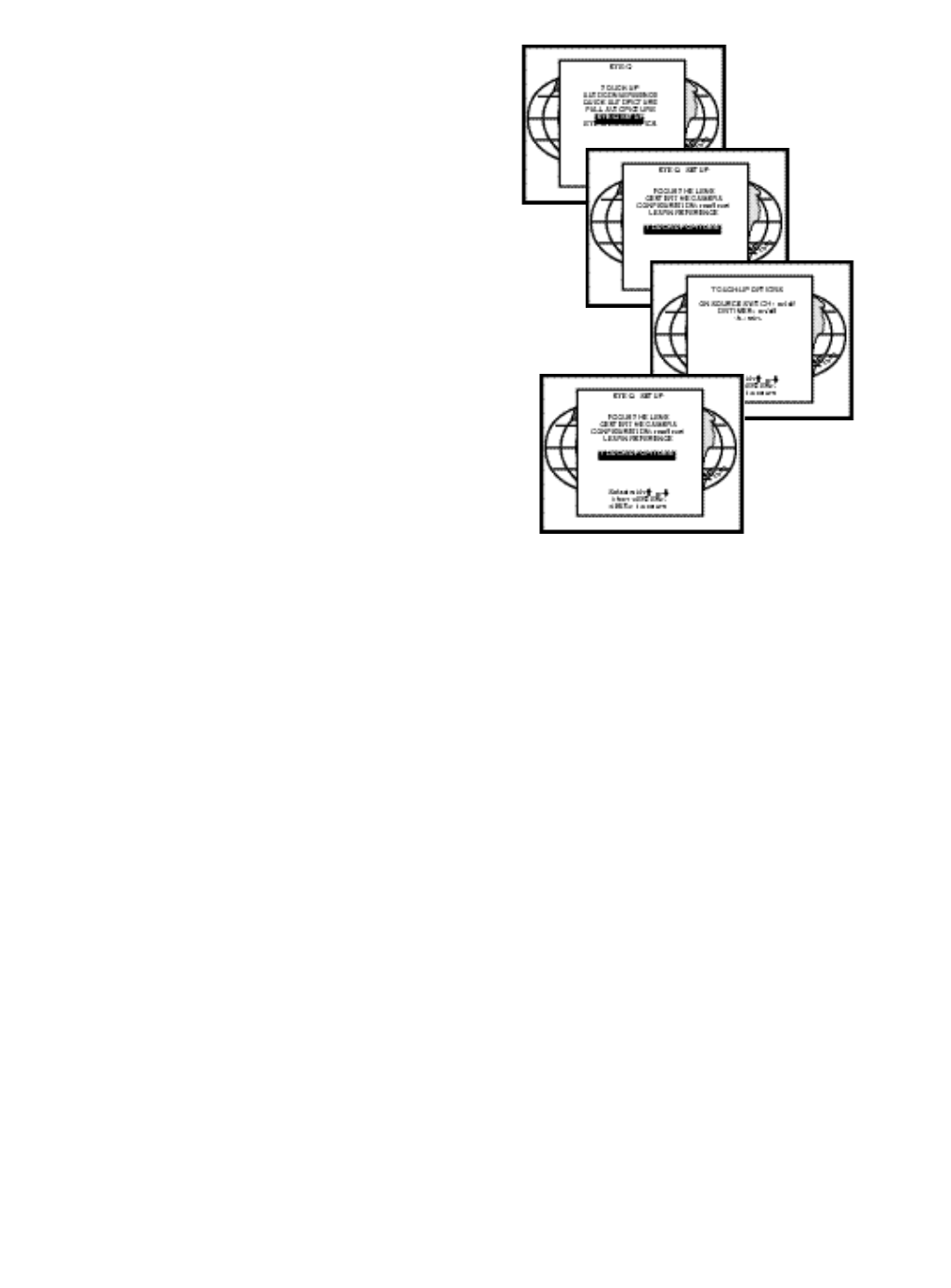
APX-8
TOUCH-UP ON TIMER
This option allows the static convergence to be carried out auto-
matically after a user-defined time, which can be programmed in
hours and/or minutes.
To program the touch-up on Timer:
Push up or down keys of the control disc to highlight ON
TIMER: off;
Press the <ENTER> button to switch it to ON and the preset
time will be displayed;
Press the <TEXT> button to enter the TOUCH-UP TIMER
menu;
Push left or right keys of the control disc to highlight the digit
to be changed;
Use the numeric keys to enter a desire value;
Press the <ENTER> button to confirm and the EYE-Q
TM
SETUP menu will return on the screen; or press the <EXIT>
button to leave the preset value untouched and return to the
EYE-Q
TM
SETUP menu.
Press the <EXIT> button to return to the EYE-Q
TM
menu.
When one adjust geometry by hand, a reference screen and a refer-
ence pattern are required. There are a lot of possibilities for a ref-
erence screen. A test pattern for a video test disc is normally used.
See geometry section of manual for more information. Once a
selection of a reference screen and a reference pattern is made,
adjusting geometry is only a matter of converging these two ele-
ments.
EYE-Q
TM
requires a reference for adjusting geometry. The simplest
way to have a reference screen is to adjust one source by hand,
which then serves as a reference for all other sources. After adjust-
ing a source, the reference is learned by EYE-Q
TM
and stored in
non-volatile memory. Having this Reference Source in memory
EYE-Q
TM
can adjust all other sources to have the same geometry as
the Reference Source.
REFERENCE SOURCE
Before any geometric adjustment can be done, the user Must learn
a Reference Source. This process is ONLYDONE ONCE since the
Reference will be stored in non-volatile memory. If however, the
projector is moved from its position, then the Learn Reference pro-
cedure must be repeated. After learning a Reference do not touch
the camera (for focusing and centering).
If using multi-aspect ratios, a Reference Geometry must be done
for each aspect ratio.
ADJUSTING OTHER SOURCES
Once a Reference Source is in memory, other sources are aligned
with the same geometry as the Reference Source. If no Reference
Source is learned, the resulting geometry will be unpredictable.



